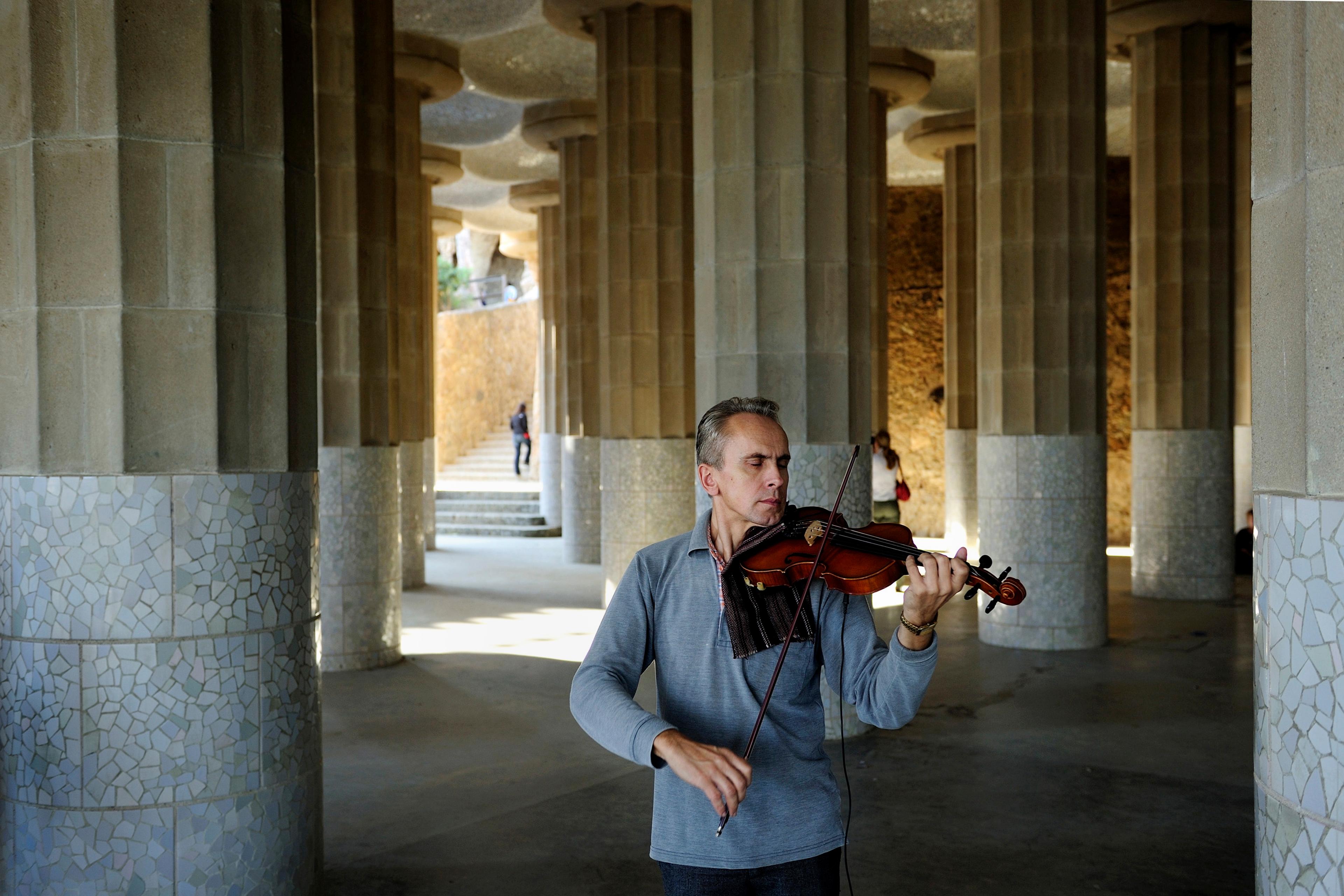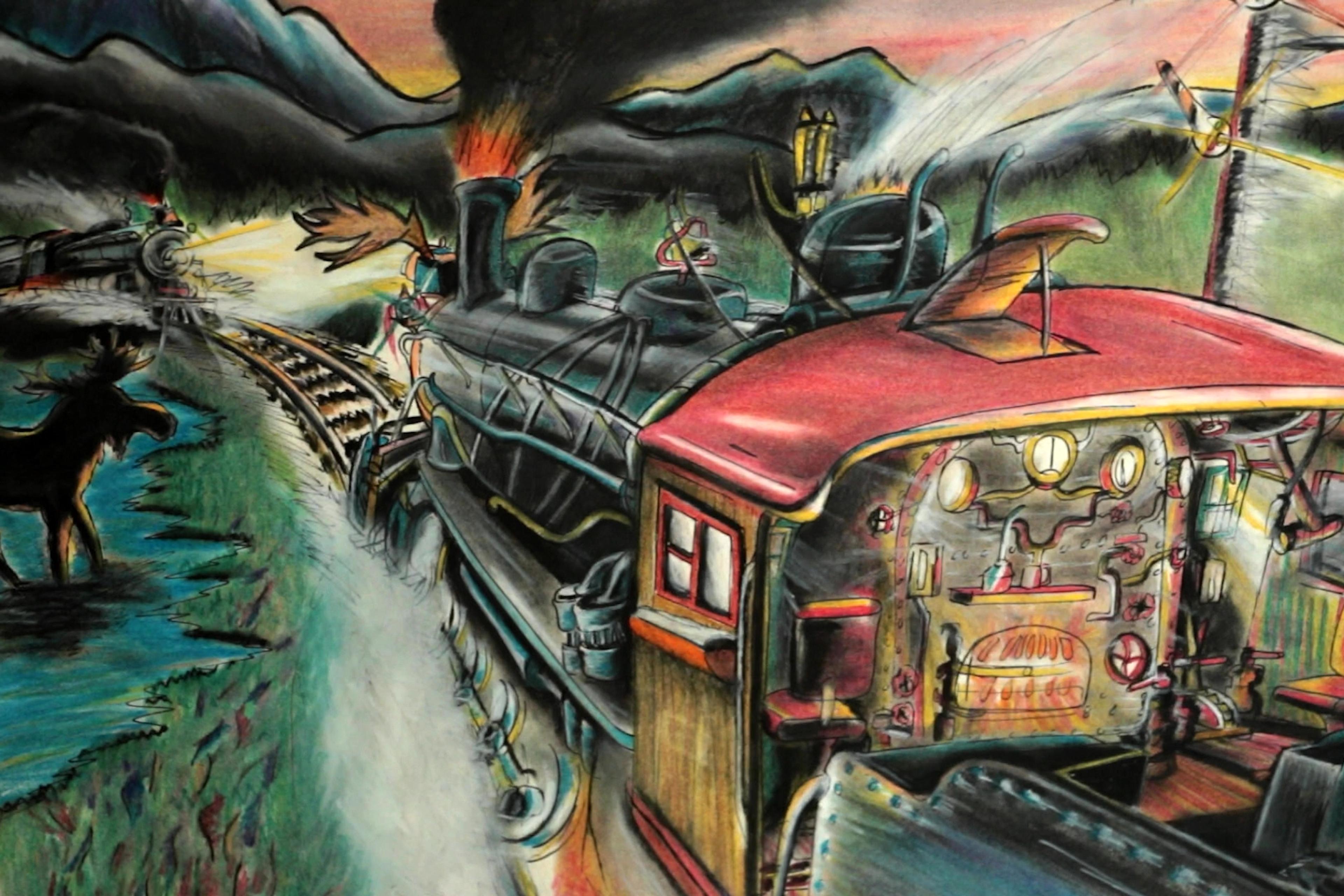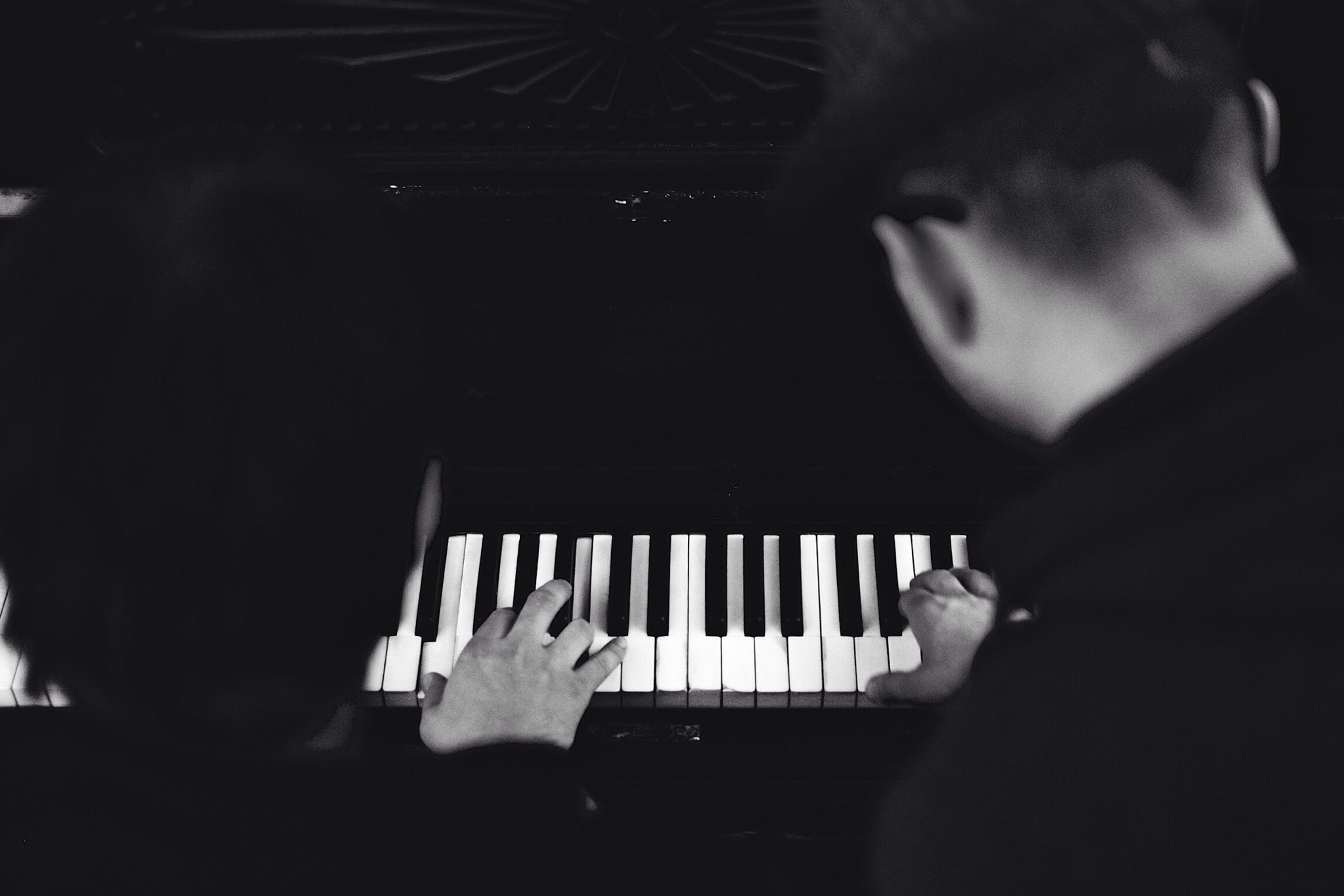On the surface, Sean Logan lives out something resembling a quintessential jazz musician’s existence. He spends his days seeking out and riffing with like-minded collaborators, lugging his keyboard to clubs around his home city of Edinburgh and finding joy in the act of playing no matter the crowd size. However, as an Autistic person, becoming comfortable with the interpersonal aspects of his work, and especially partnering with other musicians, has been a hard-earned skill – one gained through reading ‘a lot of books’ to help him understand the facial expressions and body language of others.
In Harmonic Spectrum (2021), the Scottish filmmaking team Austen McCowan and Will Hewitt explore Logan’s life and distinctive perspective on music as he embarks on a new project. Working alongside the US drummer Anthony Ravelo, Logan practises, performs at an open mic, and attempts to get a tour off the ground. In the process, he’s forced to navigate the doldrums of life as a musician amid the COVID-19 pandemic and his tendency to revert to solitude despite a strong desire to connect with others. Following the upheavals of lockdown and a brief creative split with Ravelo, the collaboration culminates in an exuberant live performance at the Edinburgh venue Pianodrome.
Composed of observational shots, narration from Logan, and footage of the duo practising and performing, the short documentary provides a charming and insightful dive into Logan’s life. In perhaps the film’s most compelling sequences, he sits at a keyboard or piano, explaining how he’s grown to understand himself best through music. It feels almost dishonest, he says, when his playing doesn’t express how he’s feeling. He demonstrates this by showing his frustration as he performs a waltz at its intended slow pace before speeding it up. Music has also helped him to realise that, while he finds happiness in solitude, there’s a richness in being with others that he doesn’t want to miss out on. As he says this, he sprinkles his keyboard with a major chord that transforms into tenser tones to express his inner conflict. In these moments, the viewer is given an unvarnished window into Logan’s process of using music to make sense of his mind.
While the film is a portrait of an Autistic musician, its themes reach far beyond the specificities of Logan’s world. The question of how to feel authentic in one’s life and work, for instance, can be a struggle for neurodivergent and neurotypical people alike. So, too, is the problem of how to negotiate between the safety of the familiar and the often rich rewards that come from expanding one’s horizons. Understanding how to navigate each of these demands is the hard work of self-knowledge, whether it be gained through therapy, deep reflection, conversations with loved ones or, as in Logan’s case, books and music. And, as Harmonic Spectrum illustrates, it’s not a project that can ever be fully completed, but a lifelong endeavour that requires enduring attention and effort.
Written by Adam D’Arpino







